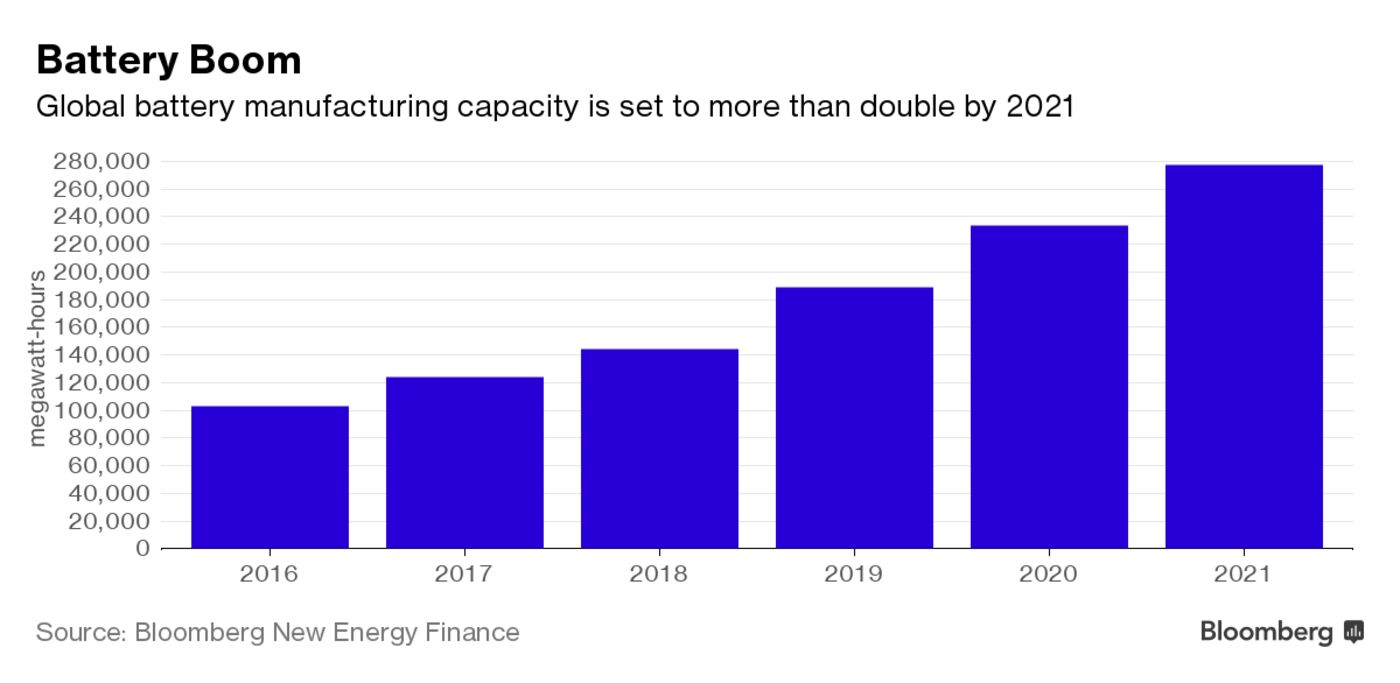Categories:
Energy
/
General Market Commentary
Topics:
General Energy
/
General Market Commentary
Germany to Take on Tesla With Gigafactory Rival
-
Terra E has lined up 17 partners for billion-euro project
-
Construction on 34 gigawatt-hour factory to start in 2019
German executives are preparing to announce a new home for a lithium-ion battery plant designed to rival the output at Tesla Inc.’s Gigafactory.
Terra E Holding GmbH will choose one of five candidate sites in Germany or a neighboring country next month to build its 34 gigawatt-hour battery factory, Frankfurt-based Chief Executive Officer Holger Gritzka said in an interview. The former ThyssenKrupp AG manager has helped to assemble a consortium of 17 German companies and won government support for the project, which will break ground in the fourth quarter of 2019 and reach full capacity in 2028, he said.
The battery factory is the latest sign that German industry, the motor behind the world’s fourth-biggest economy, is gearing up for a new stage in the energy revolution. Lithium-ion batteries can help stabilize intermittent flows of wind and solar power on electricity networks. They’re also projected to power millions of plug-in cars expected to roll off German production lines beginning early next decade.

“We have to be better in process technology than competitors, a constant step ahead,” said Gritzka, who emphasized that Terra E will be counting on Germany’s competitive edge in manufacturing robotics and automated production to make money.
Global battery-making capacity is set to more than double by 2021, reaching 278 gigawatt-hours, up from about 103 gigawatt-hours in the second quarter, according to Bloomberg New Energy Finance. Asia electronics makers including South Korea’s LG Ltd. and Samsung SDI Co. currently control the market. Tesla will become the world’s No. 2 battery maker once it finishes building its $5 billion, 35 gigawatt-hour Gigafactory in Nevada, according to the London-based researcher.
Merkel’s Endorsement
Some of Terra E’s consortium members also may become its clients, according to Gritzka, who declined to name companies participating. The project, which won 5.2 million euros ($6.2 million) in subsidies from Germany’s Ministry of Education and Research, expects to need upwards of a billion euros before completion, the CEO said.